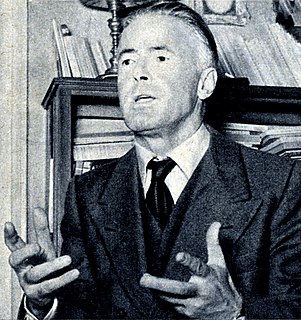A Quote by Ugo Betti
'Mad' is a term we use to describe a man who is obsessed with one idea and nothing else.
Related Quotes
Is there an idea more radical in the history of the human race than turning your children over to total strangers whom you know nothing about, and having those strangers work on your child's mind, out of your sight, for a period of twelve years? Could there be a more radical idea than that? Back in Colonial days in America, if you proposed that kind of idea, they'd burn you at the stake, you mad person! It's a mad idea!
I am still puzzled why those in the United States who truly believe in liberty should not only have allowed the left to appropriate this almost indispensable term but should even have assisted by beginning to use it themselves as a term of opprobrium. This seems to be particularly regrettable because of the consequent tendency of many true liberals to describe themselves as conservatives.
The moment we use the term 'help', a kind of egocentric idea enters into us. If we help someone, that means we are in a superior position. When we help, we feel that we are one step ahead or one step higher than the ones that we are helping. But if we serve someone, then we offer our capacity with humility, on the strength of our loving concern and oneness. So let us use the proper term, 'service'.




































